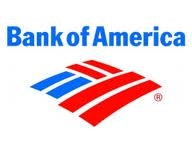
Doubtless, mergers and acquisitions caused bloat that needed to be reduced. Bank of America Corp (NYSE:BAC) has been a leader in divesting itself of branch locations, and overall, banks reduced these sites by almost 2,300 last year alone.
Are banks going too far? One thing is for certain: The effects of these closures are beginning to be felt, and not in a good way.
Low-income areas lose out
As branch locations close, banks have reinvented the concept, creating smaller spaces with self-serve options for customers, as well as access to loan officers and other banking specialists. To get the most bang for their buck, banks are placing these new sites in high-population areas — where, most often, the residents sport lofty incomes.
Meantime, low-income consumers are seeing big banks decrease their presence in their neighborhoods. According to Bloomberg, more than 90% of the branch reductions since 2008 have been in areas that have incomes below the national median. JPMorgan Chase & Co (NYSE:JPM) has nudged its percentage of branches in more upscale areas to 63%, compared to 61% in 2008. Bank of America Corp (NYSE:BAC), however, notes that 30% of its branches reside in less affluent neighborhoods.
Consumers still want the branch experience
Bank customers may be participating more in online and mobile banking, but they still crave the branch experience. A recent survey found that consumers use the availability of convenient bank branches — rather than ATM locations — to decide which bank to use for their checking accounts. Interestingly, those that chose checking accounts with the highest monthly fees were the most apt to require handy branch locations.
Those most enamored of bank branches are small businesses. A study by BAI Research revealed that small businesses conduct more than half of their transactions at branch locations, and want the personalized service available at those sites. Small business people seldom use mobile banking services, preferring a face-to-face banking experience.
Banks need to balance cost with efficacy
The BAI study makes it clear that cutting too many branches could conceivably damage the relationships that banks enjoy with their small business customers. Meanwhile, reducing their presence in less wealthy communities keeps those areas from rebounding economically, and also prevents the banks themselves from taking advantage of any revival that could be sparked by low business start-up costs in areas hard-hit by the recession.
Some banks are figuring out how to keep their costs down while providing much-needed branch services. Wells Fargo & Co (NYSE:WFC), for example, has introduced ultra-small sites in the Washington, D.C. area, and is placing branches inside Kroger grocery stores in Atlanta.
Big regional bank PNC Financial Services Group Inc (NYSE:PNC) has set up a small, mobile “pop-up” branch in the same city, which will be placed in an area with high foot traffic until November. Despite its tiny, 160 square-foot dimensions, the movable office will feature interactive ATMs and two on-site banking specialists.
When it comes to achieving success through branch banking, the winners may find that size matters less than location, location, location.
The article Why We Still Need Bank Branches originally appeared on Fool.com and is written by Amanda Alix.
Fool contributor Amanda Alix has no position in any stocks mentioned. The Motley Fool recommends Bank of America and Wells Fargo. The Motley Fool owns shares of Bank of America, JPMorgan Chase, PNC Financial Services, and Wells Fargo.
Copyright © 1995 – 2013 The Motley Fool, LLC. All rights reserved. The Motley Fool has a disclosure policy.




